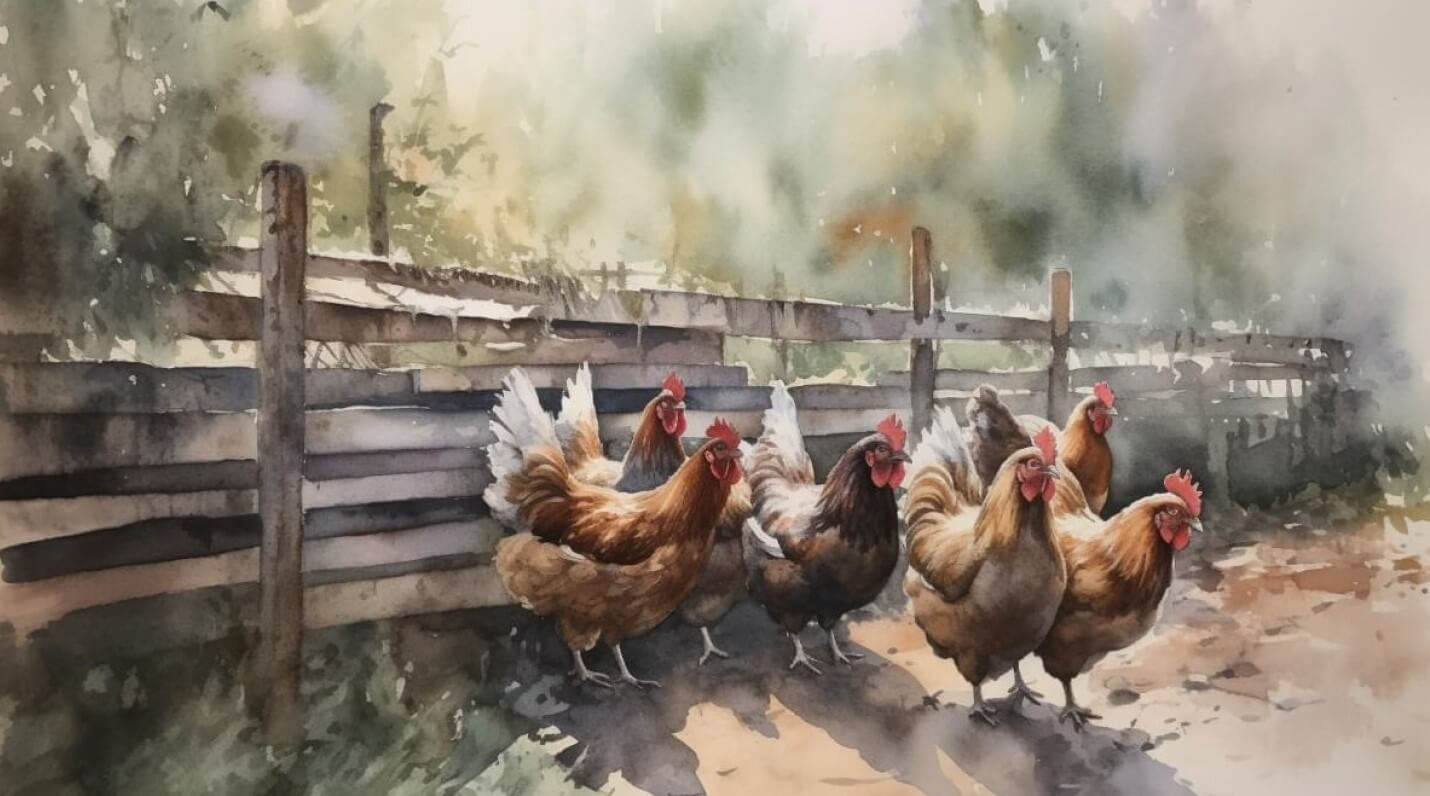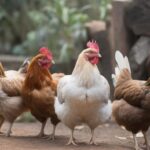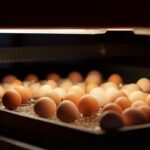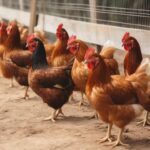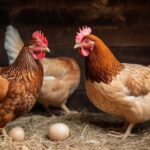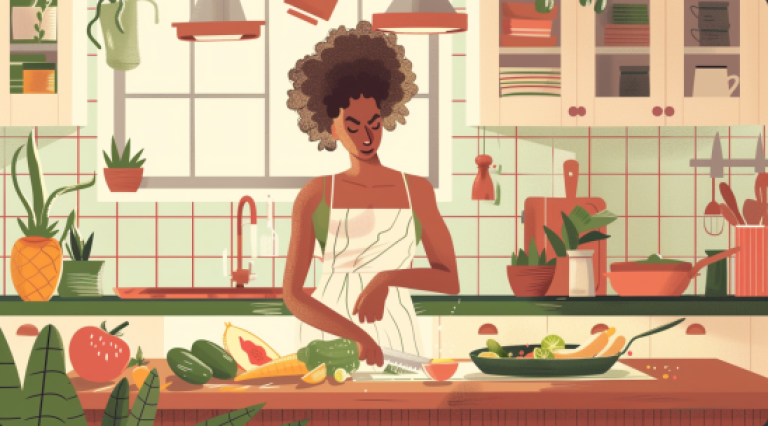Rules and Regs – Introduction
Would you prefer to listen to a short podcast discussion about this article? Click on the audio below.
The UK Government encourages people to keep chickens at home to produce fresh, homegrown eggs. However, certain rules and regs must be followed to ensure the chickens’ well-being and protect public health.
Table of Contents
One of the most important regulations is the licensing requirement. Anyone who keeps more than 50 birds must register their flock with the Animal and Plant Health Agency (APHA) within one month of acquiring the birds. This applies to all types of birds, including chickens, ducks, geese, and turkeys. The registration helps to control disease outbreaks and allows the government to trace the source of any health problems in the flock.
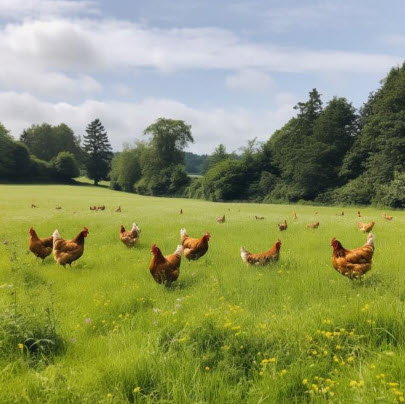
Rules and Regs – Housing Guidelines etc.
In addition to licensing, there are also guidelines for the housing and living conditions of the chickens. For example, the coop should provide adequate space for each bird to move around freely and be sheltered from the weather. It should also be ventilated and cleaned regularly to prevent the buildup of bacteria and pests.
The chickens’ diet is also crucial to their health and well-being. They should have access to clean, fresh water and a nutritionally balanced diet that includes a mix of grains, vegetables, and protein. Feeding chickens food scraps is a great way to reduce waste and save money, but avoid giving them certain foods that can be harmful, such as chocolate, avocado, and raw potato peelings.
Rules and Regs, Disease Prevention
Another important consideration when keeping chickens is disease prevention. This is especially important during a bird flu outbreak or other diseases that can devastate a flock. Simple measures like washing your hands before and after handling the birds and equipment and disinfecting the coop regularly can significantly reduce the risk of infection. You must also promptly report any signs of disease to the APHA.
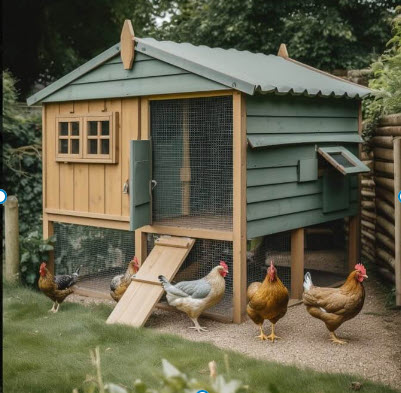
Finally, be considerate of your neighbours when keeping chickens at home. Noisy or smelly chickens can lead to complaints from neighbours, disputes, and even legal action. To avoid this, ensure that the coop is situated away from property boundaries and that the chickens are kept in their enclosure during early morning and late evening when they are most likely to be noisy.
In conclusion, keeping chickens at home in the UK is a fun and rewarding activity, and by following the rules and regulations, you can ensure that your flock stays healthy and produces fresh eggs for your family. Register your flock with the relevant authorities, provide suitable housing and diet, prevent diseases, and be considerate of your neighbours. By doing so, you can enjoy the many benefits of keeping backyard chickens while staying within the law.
Rules and Regs, The Protection of Animals Act
The Protection of Animals Act (POAA) is a UK law providing legal animal protection. The Act applies to all animals, including chickens, and prevents unnecessary suffering and mistreatment.
The POAA has several key provisions that relate specifically to chickens. One of the most important is that it is illegal to cause or permit unnecessary suffering to chickens. This includes withholding food or water, exposing chickens to extreme temperatures, or failing to provide adequate shelter or medical treatment.
In addition, the POAA sets out minimum standards for the housing and care of chickens. These standards cover living space, lighting, ventilation, and hygiene issues. The aim of these standards is to ensure that chickens are kept in conditions that promote their welfare and provide a healthy environment for them to live in.
The POAA also provides for the enforcement of these standards through statutory codes of practice. These codes detail the requirements that must be met to comply with the POAA and provide guidance on achieving best practices regarding chicken welfare.
Rules and Regs, Chickens UK
Chickens UK is an organization that seeks to promote the welfare of chickens in the UK. One of the key ways that Chickens UK works is by raising awareness about the standards set out in the POAA.
Chickens UK provides a wealth of information and resources for chicken keepers, including guidance on housing and care and advice on how to comply with the POAA. The organization also offers training and education programs for those involved in keeping chickens, such as smallholders, farmers, and backyard enthusiasts.

In addition to its work with chicken keepers, Chickens UK also works with government bodies and other organizations to ensure the rules and regs are followed. In addition, the organization serves as a voice for chicken welfare concerns and works to ensure that the POAA is enforced and updated as necessary.
Summary
Overall, the Protection of Animals Act and Chickens UK represent a solid commitment to the welfare of chickens in the UK. By setting out legal protections for these animals, the POAA and organizations like Chickens UK are helping ensure that chickens are treated with the respect and compassion they deserve.
If you require any assistance with this article, please do not hesitate to Contact Us
For more information, visit The British Poultry Council
